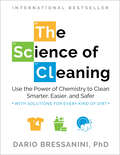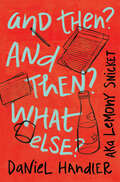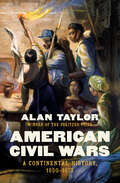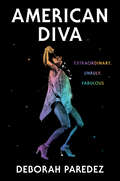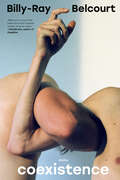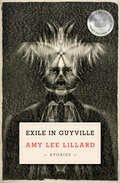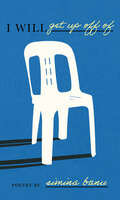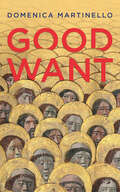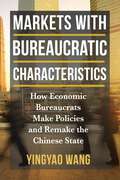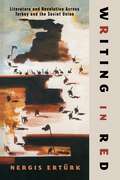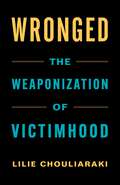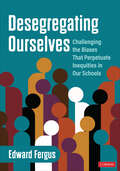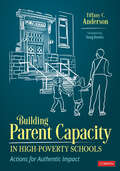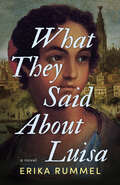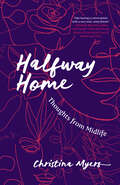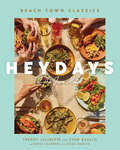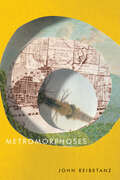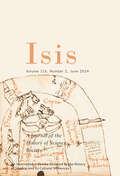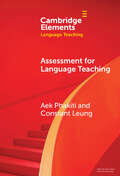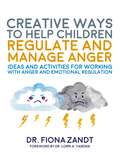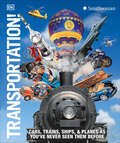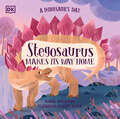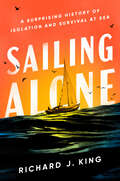- Table View
- List View
The Science of Cleaning: Use The Power Of Chemistry To Clean Smarter, Easier, And Safer-with Solutions For Every Kind Of Dirt
by Dario BressaniniThe definitive, science-backed guide to cleaning everything in your home in a safe, sustainable, evidence-based way “A great reference for anyone stumped by reluctant-to-leave dirt—and far cheaper than hiring a professional.”—Booklist Countless cleaning hacks for every kind of household dirt may vie for our attention, but how do we know which ones really work and which ones will only leave you with a sticky mess that doesn’t actually do the job? Scientific evidence comes to the rescue, as chemistry professor Dario Bressanini teaches you everything worth knowing about cleaning agents and processes (and dispels plenty of myths, too). He answers all of our most pressing housekeeping questions: Is it more efficient to wash dishes in the sink or in the dishwasher? Does bleach remove dirt? Which cleaning supplies should I buy, and which can I make at home? Can vinegar and baking soda actually unclog your drain? How can I most effectively tackle different types of stains? What can get rid of that stuff on my showerhead? Bressanini covers subjects like these by digging into chemistry basics such as solubility, pH, and concentration, bringing them out of the classroom and into the real-world chores that we deal with every day. Laundry, dishes, sinks, bathtubs, counters, floors, and more—no matter what you’re cleaning, this book explains how to choose the right tools for the task, save yourself unnecessary effort, and stay eco-friendly by avoiding waste. The Science of Cleaning reminds us that science can be both useful and exciting. With Bressanini’s help, you can keep your home, your belongings, and yourself clean—with the confidence that only centuries of advancements in chemistry can provide.
And Then? And Then? What Else?: A Writer's Life
by Daniel Handler Lemony SnicketYou never love a book the way you love a book when you are ten. Writing as Lemony Snicket, Daniel Handler has led several generations of young readers into that special and curious space of being hopelessly lost, and joyfully finding yourself, in the essential strangeness of literature. The wondrous and perilous journey of the Baudelaire orphans sprung from the author’s own path, from his childhood discovery of Baudelaire’s poetry through the countless peculiarities of his pursuit of a literary life—abject failure and startling success, breakthrough and breakdown, concordance and controversy—lit along the way by the books and culture he loved best. At once a personal memoir and a literary exploration, a how-to book and a critical inquiry, a sequence of stories and a series of events, And Then? And Then? What Else? is a book not just for anyone curious about the creator of Lemony Snicket, but for anyone who loved books when they were a child, and still loves them now.
American Civil Wars: American Citizens, British Subjects, Irish Rebels, And Indian Allies
by Alan TaylorA masterful history of the Civil War and its reverberations across the continent by a two-time Pulitzer Prize winner. In a fast-paced narrative of soaring ideals and sordid politics, of civil war and foreign invasion, the award-winning historian Alan Taylor presents a pivotal twenty-year period in which North America’s three largest countries—the United States, Mexico, and Canada—all transformed themselves into nations. The American Civil War stands at the center of the story, its military history and the drama of emancipation the highlights. Taylor relies on vivid characters to carry the story, from Joseph Hooker, whose timidity in crisis was exploited by Robert E. Lee and Stonewall Jackson in the Union defeat at Chancellorsville, to Martin Delany and Mary Ann Shadd Cary, Black abolitionists whose critical work in Canada and the United States advanced emancipation and the enrollment of Black soldiers in Union armies. The outbreak of the Civil War created a continental power vacuum that allowed French forces to invade Mexico in 1862 and set up an empire ruled by a Habsburg archduke. This inflamed the ongoing power struggle between Mexico’s Conservatives—landowners, the military, the Church—and Liberal supporters of social democracy, led ably by Benito Juarez. Along the southwestern border Mexico’s Conservative forces made common cause with the Confederacy, while General James Carleton violently suppressed Apaches and Navajos in New Mexico and Arizona. When the Union triumph restored the continental balance of power, French forces withdrew, and Liberals consolidated a republic in Mexico. Canada was meantime fending off a potential rupture between French-speaking Catholics in Quebec and English-speakers in Ontario. When Union victory raised the threat of American invasion, Canadian leaders pressed for a continent-wide confederation joined by a transcontinental railroad. The rollicking story of liberal ideals, political venality, and corporate corruption marked the dawn of the Gilded Age in North America.
American Diva: Extraordinary, Unruly, Fabulous
by Deborah ParedezAn impassioned homage to the divas who shake up our world and transform it with their bold, dazzling artistry. What does it mean to be a “diva”? A shifting, increasingly loaded term, it has been used to both deride and celebrate charismatic and unapologetically fierce performers like Aretha Franklin, Divine, and the women of Labelle. In this brilliant, powerful blend of incisive criticism and electric memoir, Deborah Paredez—scholar, cultural critic, and lifelong diva devotee—unravels our enduring fascination with these icons and explores how divas have challenged American ideas about feminism, performance, and freedom. American Diva journeys into Tina Turner’s scintillating performances, Celia Cruz’s command of the male-dominated salsa world, the transcendent revival of Jomama Jones after a period of exile, and the unparalleled excellence of Venus and Serena Williams. Recounting how she and her mother endlessly watched Rita Moreno’s powerhouse portrayal of Anita in West Side Story and how she learned much about being bigger than life from her fabulous Tía Lucia, Paredez chronicles the celebrated and skilled performers who not only shaped her life but boldly expressed the aspiration for freedom among brown, Black, and gay communities. Paredez also traces the evolution of the diva through the decades, dismayed at the mid-aughts’ commodification and juvenilizing of its meaning but finding its lasting beauty and power. Filled with sharp insights and great heart, American Diva is a spirited tribute to the power of performance and the joys of fandom.
Coexistence: Stories
by Billy-Ray BelcourtSuperbly rendered portraits of modern indigeneity from the acclaimed author of A Minor Chorus. A grieving mother calls out to her faraway son. A student forgoes the lurid appeal of dating apps in exchange for a painter’s love. The anonymous voices of queer native men converge amid violent eroticism. A man just out of prison balances the uneasy weight of family and freedom, while a professor returns home to conduct research only to be haunted by a dark specter. The stories and voices in Billy-Ray Belcourt’s debut story collection are buoyed by philosophical undergirding, poetic demand, and the complex relationship between aesthetics and ethics. Belcourt pirouettes through the short story form in his signature staccato voice, imagining a range of characters from all walks of native life. He is an expert in celebrating the ways Indigenous peoples make total conquest impossible. “These characters’ passionate insistence on loving and desiring and hoping, amid the existential terror of colonization—and Billy-Ray Belcourt’s nuanced and attentive rendering of it—is the most revolutionary of acts.” —Vauhini Vara, author of Pulitzer Prize finalist The Immortal King Rao “A brilliant exploration of the boundaries both imposed and imagined that exist between beings and the spaces we inhabit. This engaging, alive text drills right to the heart of what it is to be Indigenous in the twenty-first century.” —Mona Susan Power, author of A Council of Dolls
Exile in Guyville
by Amy Lee LillardIn the stories of Exile in Guyville, probable futures and alternate realities take aim at unruly women, and show how they refuse to be ruled. With a speculative and surreal style, Amy Lee Lillard’s prize-winning collection explores a living museum of women from across time; a life app that forces women to comply with beauty standards; a future internment camp with a literal race for survival; and a band of middle-aged Riot Grrrls, taking vengeance with a new power. With humor, rage, and a razor-sharp eye for detail, Exile in Guyville renders the invisible as seen, and the powerless as empowered.
I Will Get Up Off Of
by Simina BanuOverthinking simple actions leads to overwhelming poems about what one can lean on if promised help doesn’t helpI Will Get Up Off Of is a book about trying to leave a chair. How does anyone ever leave a chair? There are so many muscles involved – so many tarot cards, coats, meds, McNuggets, and memes. In this book, poems are attempts and failures at movement as the speaker navigates her anxiety and depression in whatever way she can, looking for hope from social workers on Zoom, wellness influencers, and psychics alike. Eventually, the poems explode in frustration, splintering into various art forms as attempts at expression become more and more desperate. What is there to lean on when avenues promising help don’t help? Bell may want to #talk but does it want to listen? I Will Get Up Off Of explores the role art plays in survival and the hope that underlies every creative impulse."The voice of these poems moves like a magical fish trapped in a small square bowl, dazzlingly alive inside an almost annihilating constriction. These poems play a serious game in a tight space, caught in the looping limbo between intention — “I will…”, “I will…”, “I will…”— and action. Simina Banu’s skill and humour animate every line and gesture within this inventive drama that begins “(I will get up off of) this monobloc but I’ve been sentenced….” Sentenced to form and to language, Banu gives us a mind thinking its way toward freedom." – Damian Rogers, author of Dear Leader
Good Want
by Domenica MartinelloWhat if poetry and prayer are the same: intimate and inconclusive, hopeful and useless, a private communion that hooks you to the thrashing, imperfect world?Good Want entertains the notion that perhaps virtue is a myth that’s outgrown its uses. Exploring the value and shame ascribed to our desires both silly and serious – artistic, superficial, spiritual, relational – these poems grapple with deeply rooted questions: How can there be a relationship between goodness and godliness, if god is a character with shifting allegiances and priorities? Is clarity worth the pain of redefining your experience of the world? Is privacy the same as secrecy the same as deceit? Each caveat becomes a prayer, ritual, invocation, dream, or confession, requiring a blind faith that feels increasingly more impossible to sustain. Good Want looks inward, at once both sincere and tongue-in-cheek, to confront the hum of class and intergenerational trauma. Playing with and deconstructing received notions of ‘good,’ ‘bad,’ and ‘god,’ these poems open up a series of further possibilities: empathy for difficult people, acceptance of our difficult selves, and joy in every difficult thing."These are lush, provocative poems that luxuriate in unexpected detail while examining how economic precarity shapes both shame and desire. Firmly rooted in the working class, Martinello explores the hunger we inherit from our ancestors, what it means to indulge from a position of bottomless want, and to 'Waste not your wanting.' With impressive range, a sense of humor, and entrancing musicality, Good Want is a celebration of the gluttony of girlhood, the paradoxes of faith, and everyday pleasures of a “small, specific life.” – Cassidy McFadzean, author of Crying Dress"Good Want is a baroque painting of Dutch aristocracy, but all the subjects’ garments are secretly from Walmart. I mean this in the best way. Each poem cracks me open and out shines a never-before-seen shade of light." – Shy Watson, author of Cheap Yellow"Sometimes the confessor reckons with the confessional. In Good Want, it's a wracking and lucky sometimes, full of piss and vinegar, and one that finds Domenica Martinello performing the wonderment, the depth and push and pull, between what there is to reveal and what each revelation ruptures or binds. Happily, sadly, the poet scours a life lived and unearths inheritances, burdens, and selves destined for and not for the telling. And tells them brilliantly as she pleases." – D.M. Bradford, author of Bottom Rail on Top
Markets with Bureaucratic Characteristics: How Economic Bureaucrats Make Policies and Remake the Chinese State (The Middle Range Series)
by Yingyao WangChina’s breathtaking economic development has been driven by bureaucrats. Even as the country transitioned away from socialist planning toward a market economy, the economic bureaucracy retained a striking degree of influence and control over crafting and implementing policy. Yet bureaucrats are often dismissed as faceless and inconsequential, their role neglected in favor of party leaders’ top-down rule or bottom-up initiatives.Markets with Bureaucratic Characteristics offers a new account of economic policy making in China over the past four decades that reveals how bureaucrats have spurred large-scale transformations from within. Yingyao Wang demonstrates how competition among bureaucrats motivated by careerism has led to the emergence of new policy approaches. Second-tier economic bureaucrats instituted distinctive—and often conflicting—“policy paradigms” aimed at securing their standing and rewriting China’s long-term development plans for their own benefit. Emerging from the middle levels of the bureaucracy, these policy paradigms ultimately reorganized the Chinese economy and reshaped state-market relations. Drawing on fine-grained biographical and interview data, Wang traces how officials coalesced around shared career trajectories, generational experiences, and social networks to create new alliances and rivalries. Shedding new light on the making and trajectory of China’s ambitious economic reforms, this book also provides keen sociological insight into the relations among bureaucracy, states, and markets.
Writing in Red: Literature and Revolution Across Turkey and the Soviet Union (Modernist Latitudes)
by Nergis ErtürkThe republic of Turkey and the Soviet Union both emerged from the wreckage of empires surrounding World War I, and pathways of literary exchange soon opened between the two revolutionary states. Even as the Turkish government pursued a friendly relationship with the USSR, it began to persecute communist writers. Whether going through official channels or fleeing repression, many Turkish writers traveled to the Soviet Union during the 1920s and 1930s, publishing original work, editing prominent literary journals, and translating both Russian classics and Soviet literature into Turkish.Writing in Red traces the literary and exilic itineraries of Turkish communist and former communist writers, examining revolutionary aesthetics and politics across Turkey and the Soviet Union from the mid-1920s through the 1960s. Nergis Ertürk considers a wide range of texts—spanning genres such as erotic comedy, historical fiction and film, and socialist realist novels and theater—by writers including Nâzim Hikmet, Vâlâ Nureddin, Nizamettin Nazif, Suat Derviş, and Abidin Dino. She argues that these works belong simultaneously to modern Turkish literature, a transnational Soviet republic of letters, and the global literary archive of world revolution, alongside those of other writers who made the “magic pilgrimage” to Moscow. Exploring how Turkish communist writers on the run produced a remarkable transnational literature of dissent, Writing in Red offers a new account of global revolutionary literary culture.
Wronged: The Weaponization of Victimhood
by Lilie ChouliarakiWhy is being a victim such a potent identity today? Who claims to be a victim, and why? How have such claims changed in the past century? Who benefits and who loses from the struggles over victimhood in public culture?In this timely and incisive book, Lilie Chouliaraki shows how claiming victimhood is about claiming power: who deserves to be protected as a victim and who should be punished as a perpetrator. She argues that even though victimhood has long been used to excuse violence and hierarchy, social media platforms and far-right populism have turned victimhood into a weapon of the privileged. Drawing on recent examples such as the overturning of Roe v. Wade, movements like #MeToo and Black Lives Matter, and the COVID-19 pandemic, as well as historical ones from the major wars of the twentieth century and the Civil Rights Movement, Wronged reveals why claims of victimization are so effective at reinforcing instead of alleviating inequalities of class, gender, and race. Unless we come to recognize the suffering of the vulnerable for what it is—a matter not of victimhood but of injustice—Chouliaraki powerfully warns, the culture of victimhood will continue to perpetuate old exclusions and enable further injuries.
Desegregating Ourselves: Challenging the Biases That Perpetuate Inequities in Our Schools
by Edward A. FergusChallenge the biases and beliefs at the root of disproportionality Although the Supreme Court’s landmark decision in Brown v. Board of Education recognized the detrimental effects of racist ideology in American education, disproportionality and inequality persist in our schools. Desegregating Ourselves offers educators a framework for examining and disrupting the deficit-based biases and belief systems that undergird our education system and continue to harm minoritized students. This groundbreaking book examines the root causes of persistent disproportionality, including systemic inequality, color blindness, deficit thinking, and poverty disciplining–all of which create barriers to success for marginalized students. Features include: An in-depth survey of race and racism in the American education system, its laws, and its policies, all of which perpetuate systemic inequality and harmful stereotypes A practical framework for developing cross-cultural skills and dispositions that challenge our biases and promote educational equity Concrete strategies for interrupting and replacing deficit-based thinking and prejudices Powerful reflections based on survey data from over 4,000 educators, which vividly illustrate how our beliefs manifest in schools and in our treatment of students Desegregating Ourselves is a critical guide for educators brave enough to address disproportionality by confronting the biases and belief systems that impact marginalized students. By learning to cultivate cross-cultural skills and dispositions, educators can realize the vision of educational equity for all students.
Desegregating Ourselves: Challenging the Biases That Perpetuate Inequities in Our Schools
by Edward A. FergusChallenge the biases and beliefs at the root of disproportionality Although the Supreme Court’s landmark decision in Brown v. Board of Education recognized the detrimental effects of racist ideology in American education, disproportionality and inequality persist in our schools. Desegregating Ourselves offers educators a framework for examining and disrupting the deficit-based biases and belief systems that undergird our education system and continue to harm minoritized students. This groundbreaking book examines the root causes of persistent disproportionality, including systemic inequality, color blindness, deficit thinking, and poverty disciplining–all of which create barriers to success for marginalized students. Features include: An in-depth survey of race and racism in the American education system, its laws, and its policies, all of which perpetuate systemic inequality and harmful stereotypes A practical framework for developing cross-cultural skills and dispositions that challenge our biases and promote educational equity Concrete strategies for interrupting and replacing deficit-based thinking and prejudices Powerful reflections based on survey data from over 4,000 educators, which vividly illustrate how our beliefs manifest in schools and in our treatment of students Desegregating Ourselves is a critical guide for educators brave enough to address disproportionality by confronting the biases and belief systems that impact marginalized students. By learning to cultivate cross-cultural skills and dispositions, educators can realize the vision of educational equity for all students.
Building Parent Capacity in High-Poverty Schools: Actions for Authentic Impact
by Tiffany Chanel AndersonDiscover practical strategies to foster meaningful connections with parents and families. Parental engagement today changes the future of education for the students and parents of tomorrow. In Building Parent Capacity in High Poverty Schools, the educational leader known as "the woman who makes schools work for the poor" shares insightful strategies and personal stories to guide educators in fostering meaningful connections with parents. Leveraging her wealth of experience in education, Dr. Anderson underlines the vital role of family engagement and the integration of comprehensive support structures centered around families. Underscoring the importance of nurturing parent capacity and cultivating authentic relationships with parents and community stakeholders, the book enables learning communities where parents are active participants in their child’s educational journey. Additional features include: Definitions of parent capacity, involvement, and engagement Learned and Lived" stories highlighting school districts successfully supporting families and students In Action" sections demonstrating the application of tools and strategies in different contexts A discussion of the significance of school funding and resource management By moving from rhetoric to reality, from jargon to clarity, and from bake sales to budget considerations, this strikingly practical book offers tools, methods, and ideas that school leaders and educators can use to engage parents, build their capacity, and ultimately create a future of hope for generations to come.
Building Parent Capacity in High-Poverty Schools: Actions for Authentic Impact
by Tiffany Chanel AndersonDiscover practical strategies to foster meaningful connections with parents and families. Parental engagement today changes the future of education for the students and parents of tomorrow. In Building Parent Capacity in High Poverty Schools, the educational leader known as "the woman who makes schools work for the poor" shares insightful strategies and personal stories to guide educators in fostering meaningful connections with parents. Leveraging her wealth of experience in education, Dr. Anderson underlines the vital role of family engagement and the integration of comprehensive support structures centered around families. Underscoring the importance of nurturing parent capacity and cultivating authentic relationships with parents and community stakeholders, the book enables learning communities where parents are active participants in their child’s educational journey. Additional features include: Definitions of parent capacity, involvement, and engagement Learned and Lived" stories highlighting school districts successfully supporting families and students In Action" sections demonstrating the application of tools and strategies in different contexts A discussion of the significance of school funding and resource management By moving from rhetoric to reality, from jargon to clarity, and from bake sales to budget considerations, this strikingly practical book offers tools, methods, and ideas that school leaders and educators can use to engage parents, build their capacity, and ultimately create a future of hope for generations to come.
What They Said About Luisa
by Erika RummelAn enchanting tale of the complex and fascinating life of Luisa Abrego of Seville, an emancipated woman who forges a new future for herself in colonial Mexico and gets caught in the Spanish Inquisition.Luisa Abrego, an enslaved woman in Seville, is impregnated by her master, then set free upon his death. With limited options for her future, Luisa agrees to marry a white man who wants to take her with him to Mexico, even though it means leaving her infant son behind in the care of nuns. The couple set off on a dangerous sea voyage and a perilous trek across unconquered territory, and when the settlers’ caravan is attacked by Indigenous warriors, Luisa is forced to kill a man in self-defence. Years later, still wracked with guilt and convinced she must atone for her sin, Luisa confesses to having made a promise of marriage to another man long before, in Spain. By the laws of the church this makes her a bigamist, a criminal who must be tried by the fearsome Inquisition.Based on sixteenth-century trial records of the real Luisa, this novel is not just one woman’s life in fragments but a carefully researched imagining, told in the vivid, distinct voices of the Europeans who came into contact with her.
Halfway Home: Thoughts from Midlife
by Christina MyersAward-winning author Christina Myers navigates the uncharted territory of midlife in a time of rapid social, cultural, and environmental change. Modern midlife is finding oneself halfway home but without any reliable maps for the route ahead. With wit and warmth, these personal essays move from a first bra to first hot flashes to consider the lessons we learn through media and culture––and from each other––about bodies, sexuality, fatphobia, gender roles, and what we should want in life. Christina Myers explores the ways that beauty standards and cultural expectations around femininity have shaped our identities and how we might shed those going forward; the power of friendships and the value of having other women to learn from; the anxiety of moving through motherhood into menopause in a time of global environmental crisis and political upheaval; and the uncertainty of how this stage of life should unfold, as old systems shift and crumble. Though our maps for midlife are never identical, we discover familiar paths and common landmarks in each other’s stories; these essays remind us there are others on this trail with us, just behind or just ahead, out of sight. We are not alone.
Heydays at The June Motel: Beach Town Classics
by Freddy Laliberté Evan Baulch Katie Laliberté Emma BaulchElevate your summer entertaining with beach town classics from Heydays at The June Motel. Located on the shores of Lake Huron in beautiful Sauble Beach, Ontario, Heydays at The June Motel is a retro-inspired restaurant that offers guests a chance to experience the good old days of summer. Serving reinvented coastal classics and elevated comfort food, Heydays is a place to come together with friends and family over a glass of rosé and fresh oysters while the sun goes down and a warm breeze blows in off the water. This collection of over 120 recipes offers home cooks a delectable range of mouth-watering dishes to savour and share—from their signature buttered Hot Lobster Rolls and Charred Broccoli Caesar Salad to Old Bay Fried Chicken and béchamel-covered Classic Mac and Cheese. Written with humour and warmth, and filled with absolutely stunning photography, Heydays at The June Motel: Beach Town Classics invites readers to take home the beach and create summer memories that will last a lifetime.
Metromorphoses (Hugh MacLennan Poetry Series)
by John ReibetanzWhen he first hiked the Don Valley trails / all he heard was river as he strode / beside its glitter of smashing glassGrounded in the local and immediate – from Toronto’s rivers and ravines to its highways and skyscrapers – Metromorphoses explores some of the radical changes that have taken place in the city during the course of its history.The collection’s poems focus, in roughly chronological order, on the city’s inhabitants and the changing relationships between people and place, from the original Indigenous presence, through the immigrants of the nineteenth century and the Depression and war survivors of the twentieth century, to the twenty-first century’s setbacks and affirmations. We encounter characters such as Symphony Pete, who whistled classical music while hiking Don Valley trails, Henry “Box” Brown, who escaped from southern slavery in a packing crate, or the exhausted anonymous newsboy a photographer caught fast asleep next to his stack of newspapers on a flight of stone steps. We zoom in like time-lapse photography on the changes that a single site has experienced, from wood-frame cottages to foundry to synagogue to furniture store to parking lot to the new provincial courthouse.These poems bring the reader closer to the impulses that drove the art of the Mississaugas, the escape from slavery or famine of new settlers, or the social awareness of a Dr Charles Hastings or a Raymond Moriyama. Far from Eliot’s “unreal city,” Metromorphoses takes us into the heart of the real Toronto, alive and ever-changing.
Isis, volume 115 number 2 (June 2024)
by IsisThis is volume 115 issue 2 of Isis. Since its inception in 1912, Isis has featured scholarly articles, research notes, and commentary on the history of science, medicine, and technology and their cultural influences. Review essays and book reviews on new contributions to the discipline are also included. An official publication of the History of Science Society, Isis is the oldest English-language journal in the field.
Assessment for Language Teaching (Elements in Language Teaching)
by null Aek Phakiti null Constant LeungThis Element reviews the key foundational concepts, beliefs, and practices underpinning approaches to assessment in English Language Teaching. Exploring major concepts and practices through educational, social, and ethical perspectives, it offers theoretically informed and close-to-practice descriptions and up-to-date explanations of the affordances and limitations of different assessment approaches related to language teaching. This Element presents a cohesive and pragmatic framework that allows teachers to efficiently implement tests and assessments in their contexts.
Creative Ways to Help Children Regulate and Manage Anger: Ideas and Activities for Working with Anger and Emotional Regulation
by Fiona ZandtSupport children to better understand and manage their anger with this practical guide of therapeutic activities. From exploring a child's first steps in therapy to helping parents and carers with their responses, this book provides practical advice for working with children aged 4-12 and families navigating issues of anger and emotional regulation.The book includes over fifty playful, practical, and purposeful activities to use in therapy. Grounded in theory and research around anger in children, the activities include clear therapeutic rationales for practitioners, considerations for older and younger children, suggestions for the inclusion of parents and carers, and adaptations for online practice. This is the ultimate tool for therapists looking to develop their clinical practice with creative ways to help children manage their anger.
Transportation!: Cars, Trains, Ships and Planes as You've Never Seen It Before (DK Knowledge Encyclopedias)
by DKA complete children's transportation encyclopedia, explaining how road, rail, air, and water vehicles get us from A to B.Knowledge Encyclopedia: Transportation! uses incredibly detailed 3D illustrations to show you everything you need to know about how vehicles work. Peer inside a car engine, feel the roar of a jet, watch a helicopter's rotor create lift, and explore below the decks of an ocean liner.Meet hundreds of vehicles that float, fly, or speed across the land, including the record breakers—the fastest, largest, longest, and strangest modes of transportation ever to zoom, sail, or soar. And check out current and future craft that use green energy to transport people and goods around the world.Part of DK's hugely successful Knowledge Encyclopedia series, this is the perfect gift for young transportation enthusiasts, who are curious about motors and machines.
A Dinosaur's Day: Stegosaurus Makes Its Way Home (A Dinosaur's Day)
by Elizabeth Gilbert BediaA series of picture books that teach children about dinosaurs through a narrative story, plus additional facts, and information about what they just learned.These picture books will teach children about dinosaurs through a story! Marie Bollmann’s beautiful illustrations are friendly, and fun (but still technically correct!) and each story will end with a working spread on dinosaurs doing what DK does best—using photography and illustrations to teach children incredible facts that deepen their knowledge of a well-loved subject.In this installment, follow a day in the life of a young Stegosaurus, as it wanders through its Jurassic home, gets lost, and munches its way back to the herd.
Sailing Alone: A Surprising History of Isolation and Survival at Sea
by Richard J. King&“A masterfully curated collection...You don&’t have to be a sailor to be blown away by this fascinating, bighearted book.&” —Nathaniel Philbrick, author of In the Heart of the Sea, Travels with George, and Second WindA story as vast and exhilarating as the open ocean itself, SAILING ALONE chronicles the daring, disastrous, and often absurd history of those who chose to sail across the ocean, in very small boats, alone.Sailing by yourself, out of sight of land, can be invigorating and terrifying, compelling and tedious - and sometimes all of the above in one morning. But it is also a wide expanse of time in which to think. Sailing Alone tells the story of some of the remarkable people who, over the last four centuries, have spent weeks and months, moving slowly over the world's largest laboratory: a capricious and startling place in which to observe oneself, the weather, the stars, and countless sea creatures, from the tiniest to the most massive and threatening. Richard J. King profiles characters famous, diverse, international, and obscure, from Joshua Slocum of 1898 to modern teenagers daring to take the challenge. They see strange hallucinations, lie to us (and themselves) on their travel logs, encounter sharks, befriend birds, and experience ESP, all part of the unnerving reality of extended isolation. And some disappear altogether. Sailing Alone also recounts the author's own nearly catastrophic solo crossing of the Atlantic, and the mystery of his inexplicable survival one sunny afternoon. An enormously engaging new book for skippers and armchair voyagers alike.
